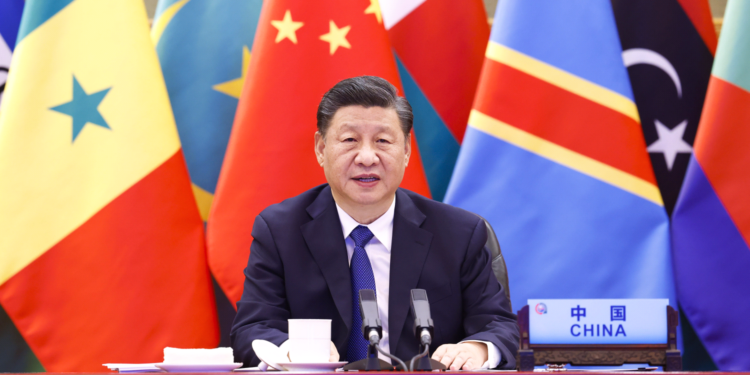Fostering Technological Exchange: China-Africa Agricultural Collaboration for Food Security

African diplomats, led by Kenyan Ambassador Willy Bett, visited China to explore its advanced agricultural practices. They witnessed cutting-edge technology in an egg production factory in Pinggu District, Beijing, highlighting the potential for modernization in Africa. Pinggu, with its agricultural expertise, symbolizes China’s commitment to innovation.
In a groundbreaking display of agricultural innovation and cross-continental cooperation, African diplomats representing over 20 nations embarked on a comprehensive exploration of China’s agricultural landscape, guided by Willy Bett, the Kenyan ambassador to China.
Their journey of discovery commenced in Pinggu District, nestled in the northeastern suburbs of Beijing, where they were afforded an intimate glimpse into the heart of China’s agricultural prowess.
The delegation’s first port of call was an egg production factory, a bastion of cutting-edge technology and efficiency. As they stepped onto the factory floor, they were enveloped in the rhythmic hum of automated machinery, witnessing firsthand the seamless orchestration of modern breeding processes.
Rows of impeccably designed equipment whirred to life, meticulously tending to the needs of thousands of chickens with precision and care. Mesmerized by the sight, the African diplomats exchanged impressed glances, their curiosity piqued by the intricacies of the automated system.
Accompanying the diplomats on their journey was Ambassador Bett, a vocal advocate for the modernization and mechanization of agriculture. Against the backdrop of the bustling factory floor, he seized the opportunity to underscore the relevance of China’s agricultural advancements to the African continent.
With eloquence and conviction, he articulated the transformative potential of adopting similar technologies in Africa, emphasizing the crucial role of technological exchange in driving agricultural development and food security.
Pinggu District, with its rich tapestry of agricultural expertise, served as an emblem of China’s unwavering commitment to innovation. Home to nearly half of China’s agricultural academicians, over 1,000 professional breeders, and a vast pool of scientific and technical talent, Pinggu emerged as a beacon of progress in the realm of agriculture.
The delegation was granted exclusive access to state-of-the-art laboratories and research facilities, where they witnessed firsthand the tireless pursuit of scientific excellence.
But China’s agricultural influence extended far beyond its borders, reaching distant shores in Africa. The chickens nurtured in Pinggu became ambassadors of Chinese agricultural expertise, finding new homes in Tanzanian soil.
At a chicken farm nestled amidst Tanzania’s verdant landscapes, workers diligently tended to their feathered charges, nurturing chickens and white-feather broilers imported from Pinggu with meticulous care. Last summer witnessed a monumental milestone in Sino-African agricultural cooperation, as thousands of chickens and broilers from Yukou Poultry made the journey to Tanzania, a testament to the success of China’s export initiatives.
To ensure the seamless integration of Chinese poultry breeds into the Tanzanian ecosystem, technicians from Yukou Poultry embarked on field trips to assess local production factors.
Armed with a wealth of knowledge and expertise, they meticulously examined feeding environments, scrutinized feeds and vaccines, and provided invaluable guidance to their Tanzanian counterparts. The result was a resounding success, as the imported chickens demonstrated remarkable resilience and disease resistance, outperforming their local counterparts.
As the diplomatic delegation engaged in spirited discussions on the future of agricultural cooperation between China and Africa, anticipation for the upcoming Forum on China-Africa Cooperation (FOCAC) meeting reached a fever pitch.
Ambassador Ibrahima Sory Sylla, representing Senegal, underscored the pivotal role of agricultural collaboration in shaping the trajectory of Sino-African relations, highlighting it as a cornerstone of the FOCAC mechanism.
His sentiments were echoed by Daphne Nomsa Mlotshwa, the charge d’affaires of the Botswanan Embassy in China, who outlined ambitious plans for agricultural demonstration centers in Botswana, signaling a new chapter in bilateral cooperation.
As the sun dipped below the horizon, casting a golden hue over the sprawling landscapes of Pinggu, the diplomatic delegation bid farewell to their hosts, their hearts brimming with inspiration and optimism. In the fertile soil of collaboration, they envisioned a future where the seeds of agricultural innovation would flourish, nourishing nations and fostering prosperity across continents.







